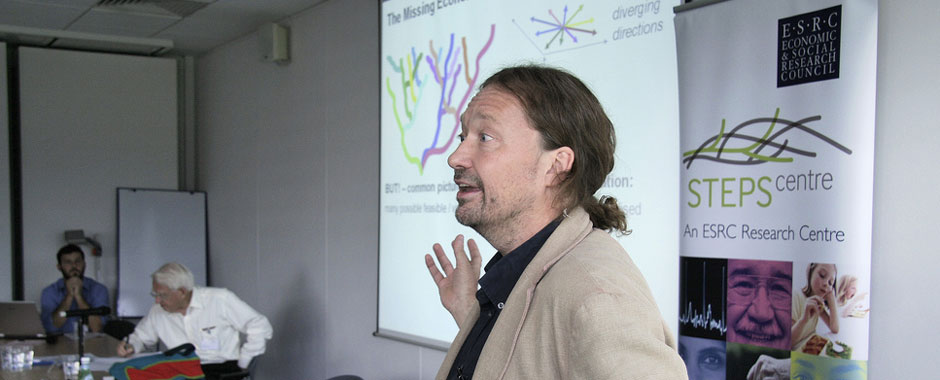STEPS co-director Andy Stirling was one of the ‘witnesses’ in an interesting debate on the Moral Maze last night, discussing ethics and democracy in science.
(Update, 14 March 2016: Andy has written a post for the Guardian’s ‘Political Science’ blog reflecting on biases around science & technology discussions in the UK.)
Alongside its many benefits, science can bring unforeseen consequences and be used for ill. One response to this might be to apply a system of ethical standards and regulatory principles for all science, as the Science Council appear to be proposing. Others might see this as an overbearing response, limiting scientists by forcing them to predict the outcomes of their work.
But there are other ways and opportunities to deliberate about ethics in science.
One is by looking critically at the way scientific research is already steered by public and private funding, research agendas and questions which prioritise some views and marginalise others. Public debate could focus more not only on how scientific discoveries are used, but which question scientists ask or not, and why.
You can listen again to the programme via the BBC website (also available to non-UK listeners)
